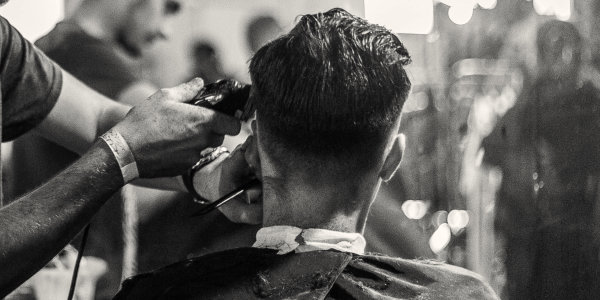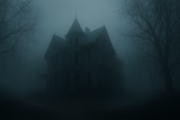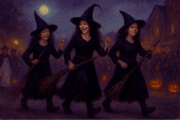Ramon Urdaneta was originally from Seville. He had been a master of tonsure in the small village beyond the hills near Barcelona where the Franciscan monks lived. He found that his supply of clients fell away drastically when the call to priestly vocation went increasingly unheard in Catholic Spain in the years following the liberalizing that came in the wake of Vatican II. Monks became rarer, and those who remained no longer needed the distinctive haircut that identified them as mendicants devoted to a life of poverty, obedience and chastity. As a consequence, Ramon packed up his barbering tools at the relatively advanced age of forty-one and followed his daughter to suburban Ontario, where he was gratified to discover his art with comb and scissors won him a faithful clientele among the older inhabitants of the somewhat down-at-heel neighbourhood of Fawcetts Falls (its apostrophe lost to history), once a small mill town in its own right, and now swallowed up by the encroaching sprawl of Canada’s largest city. His barber shop, sandwiched between a grimy apartment building and a shabby independent pharmacy, was well-kept, cheerful, and welcoming. Ramon had pictures on his mirror of his late wife Rosa, of the Blessed Virgin, and of Jesus and his Sacred Heart, as well as a selection of postcards sent him by customers away on cruises or by former clients who had moved away. Of these he never spoke unless a customer asked him about them, for he was a man of few words, but of great charm and tact, a quiet little man of becoming modesty, blessed with a warm and genial manner. His prices were reasonable too, and it pained him to have to raise them when he had no choice.
Opening his shop every morning at ten was a ritual he looked forward to. He descended to the little two-chair shop, or salon, as his daughter Carmen insisted it be called, from the apartment above, where the two of them lived. First he set out his sparkling tools on the linen cloth that Carmen had dutifully starched for him the night before. Then he lined up his two clippers, his straight razor, his shears and guards and various combs on the cloth, and carefully replaced freshly-honed scissors in the stone jars on the counter in front of the mirror. Then he washed his hands thoroughly in the cracked but much-loved sink he had salvaged from a lumber yard many years before. At exactly ten o’clock, he opened his street door, and carried his sandwich board out to the kerb. “Ramon’s Haircuts,” it read. “Always a pleasure to serve you!”
This particular morning, bright with the chill of October sunlight, and with a hint of unseasonable warmth to come, had washed the streets with overnight rain. The uneven hodge-podge of ageing buildings that was the streetscape stood out sharp and clear against the sky. Ramon waved to the owner of the crowded little warren of a flower shop across the way and turned back to the salon, half-expecting to see old Hassan waiting impatiently for him at the door, as he always did on a Wednesday, but no-one was there. Was he ill? Hassan came early, as he would become quite irritable if another client got into the chair before him and caused him to wait. He told Ramon he had a “duty” to see him every week and chat. This he would do without invitation or interruption for half an hour while Ramon good-naturedly listened and made a show with his combs and scissors– for Hassan was quite bald.





